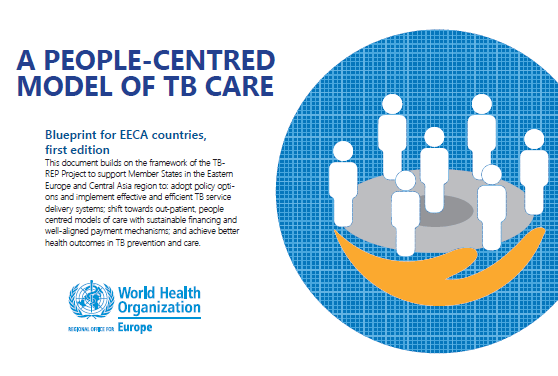
WHO/Europe releases a blueprint for a people-centred model of TB care that shifts care closer to people and communities.
WHO/Europe, in collaboration with partners, has developed a blueprint for a people-centred model of tuberculosis (TB) care that shifts care closer to people and communities. This entails moving towards ambulatory treatment and care, strengthening services involving primary care, and better integrating care across various providers, levels and settings within health systems.
The proposed model aims to transform the delivery of often-outdated TB services to enhance user-friendliness. It recommends that health and social care providers plan and develop care options in collaboration with the people who need and benefit from them. It also focuses on improving the financial arrangements that drive services, and creating a fit-for-purpose health workforce.
This first edition of the blueprint will help guide countries and partners to introduce and sustain effective and efficient services delivery for the prevention and care of TB.
Countries strengthen a primary-health-care approach to manage TB
At present, eastern European and central Asian countries are in the process of transitioning from hospital-based services for inpatients towards primary care services that increasingly assume important roles in the management, detection and prevention of TB and other communicable diseases.
To achieve a smooth transition, countries must overcome barriers including inefficient payment mechanisms for TB services, insufficient support of the health workforce, lack of capacity and uneven distribution of health workers, lack of modern health technologies, and poor access to quality medicines.
The blueprint provides tailored policy options to support countries in redesigning their existing models of care while putting people at the centre.
TB – a public health concern
TB, particularly multidrug- and extensively drug-resistant TB, is a significant public health concern in the WHO European Region. The Region includes 9 of the world’s 30 high-burden countries for multidrug-resistant TB. Latest surveillance data also indicate that in 2015, about 1 in 5 multidrug-resistant TB cases globally occurred in the Region.
In many countries, multidrug-resistant TB may be an indicator of partial health system failure. The disease can reflect outdated and excessive hospital-based care, delayed start of treatment, unnecessarily long hospital stays, challenges in accessing quality drugs, and insufficient patient support systems.
Video – What is people-centred care?
World TB Day: leave no one behind
Source: WHO/Europe